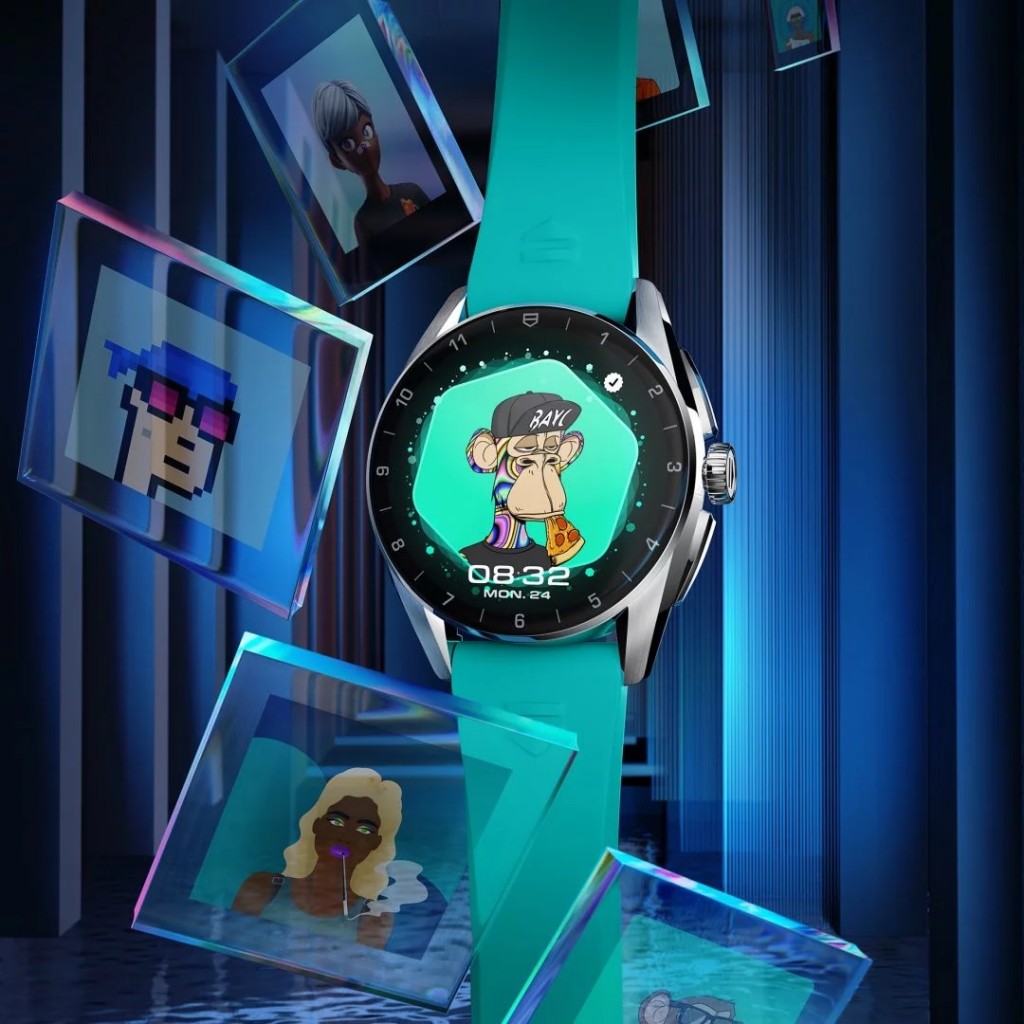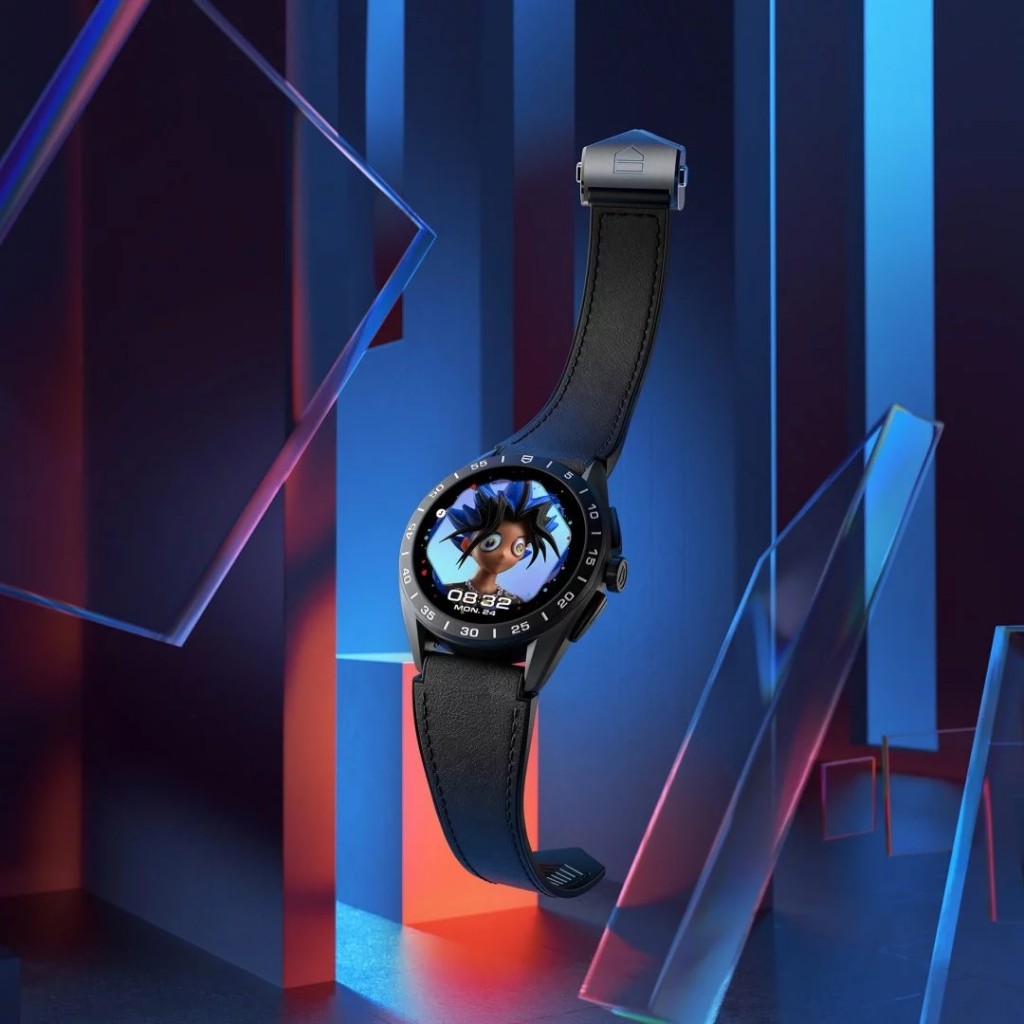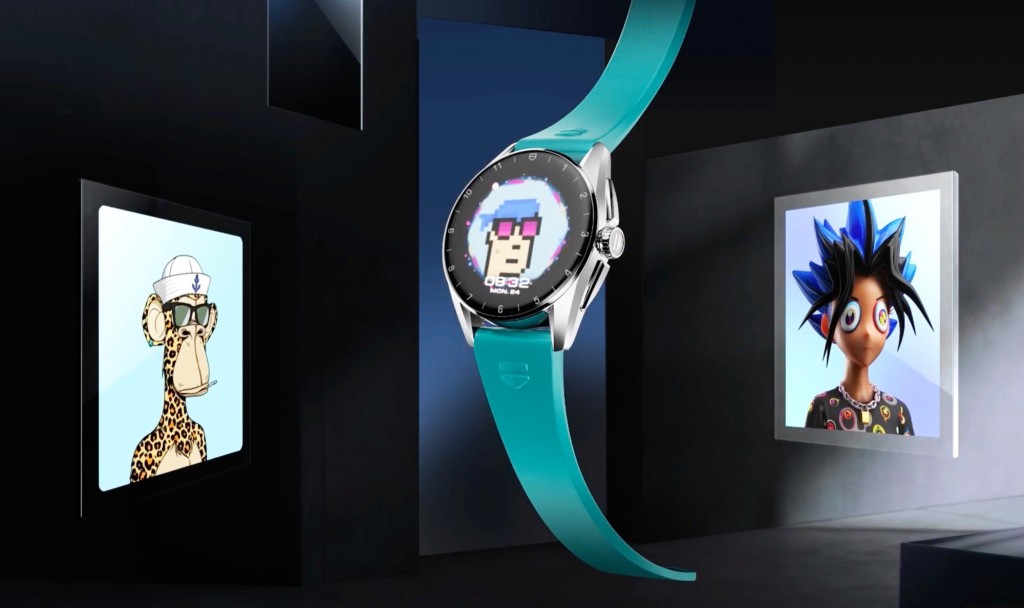When Bernard Arnault set out to expand the LVMH empire, the last thing on his mind might have been Web3 and NFTs, but this is definitely not the case for his scions who are now heading brands under the conglomerate. Alexandre Arnault, VP of Tiffany&Co, showed how NFTs can have real-life uses when he converted his jpeg into a pendant. Now, his brother, Frédéric Arnault, is following in his footsteps: Tag Heuer has introduced a new feature that allows its smartwatches to connect to crypto wallets and display NFTs on its face.

The new functionality has been added to the Tag Heuer Connected Calibre E4 smartwatch, and will also be available as a free update for smartwatch owners via Apple’s App Store and Google’s Play Store. Users will get the opportunity to display their NFT artworks on their timepiece face by connecting their crypto wallets, such as Metamask or Ledger Live, to guarantee authenticity.
Frédéric, CEO of Tag Heuer, will be using the functionality himself: he recently bought an NFT from Bored Apes — an Ape with an eyepatch and a diamond grin.
How it works
Users interested in this new feature can transfer multiple NFTs to the new Lens timepiece face via a paired smartphone. Once transferred, you can resize the images, so they fit on your smartwatch’s round screen. The timepiece face has three unique ways of displaying time while showcasing your favourite NFT artworks, which are displayed in a hexagon with a cloud of particles gravitating around the image. This includes a conceptual design with a triangle and a circle representing hours and minutes.

You don’t have to worry about the clarity of the images under sunlight: Tag Heuer says the screen is clear even in strong sunlight. And high fidelity colour reproduction means your NFTs are displayed just as the creators intended.
A new revolutionary introduction to horology?
The art of watchmaking has come a long way since legend has it that Abraham Louis-Breguet created the first wristwatch for the Queen of Naples, Maria Carolina, even though Patek Philippe officially claims this record. The world of horology has since welcomed quartz, accepted stainless steel as luxury after the debut of the Audemars Piguet Royal Oak in 1972, and learned to live with – and even embrace – the sheer audacity introduced by the Ulysse Nardin Freak in 2001.
But most of these historic moments have been related to function, material and style/design. The introduction of quartz, for example, meant more accurate timepieces at incredibly cheap prices.

NFTs are no doubt revolutionary and have so far succeeded in upending the traditional structure of power in the creative industry. But how exactly does having your NFT show up on your timepiece face count as revolutionary? Perhaps, if this feature had appeared before the advent of smartphones, it might have been considered a more groundbreaking concept?
Frédéric is more confident in the ability of the new feature to take off and become widespread in horology. “We already sold nice pieces,” he tells Vogue Business. “Now, we will speak more directly to the community. We remain very confident in the mid-term. There is volatility, but overall there was very strong growth last year and we are expecting strong growth this year.”
